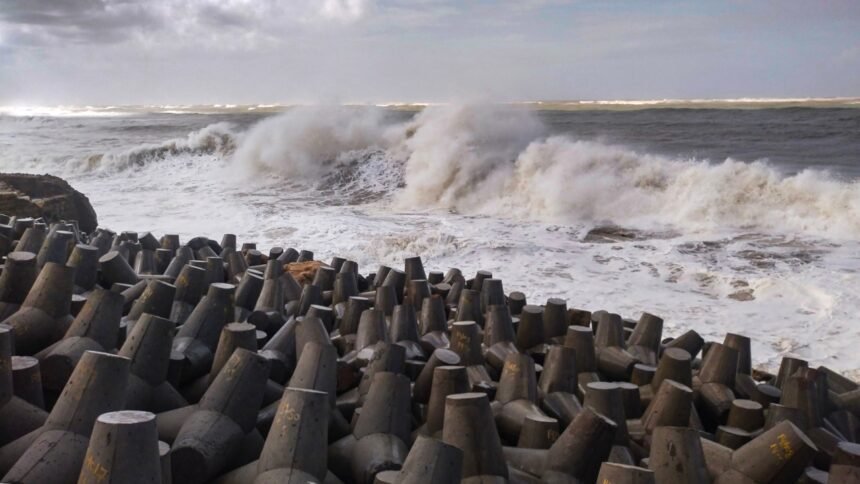In the coastal town of Mandvi, Gujarat, renowned for its traditional ship-building expertise, anxiety looms as Cyclone Biparjoy approaches. With under-construction ships lining the shore, the local ship-builders fear that the impending cyclone may wreak havoc on their industry. Adding to their distress is the apathy displayed by government officials, who have shown little concern for the potential devastation that lies ahead. As the cyclone, predicted to make landfall between Mandvi and Karachi on Thursday evening, draws nearer, the ship-builders find themselves grappling with the challenge of safeguarding their valuable work.
Mandvi has long been recognized as a hub for ship-building, with generations of skilled craftsmen passing down their knowledge and expertise. The town’s ship-building industry has flourished for centuries, attracting clients from across the globe. However, the approach of Cyclone Biparjoy threatens to disrupt this longstanding tradition, leaving the ship-builders in a state of deep concern.
Local businessman Rajesh Patel voiced his grievances regarding the indifference displayed by government officials. “We are facing a grave threat to our industry, yet the authorities seem disinterested in our plight,” he lamented. The ship-builders have repeatedly sought assistance and guidance from the government to secure their under-construction vessels, but their pleas have fallen on deaf ears. With time running out, the ship-builders find themselves grappling with the lack of support and resources to protect their hard work.
Cyclone Biparjoy, with its impending landfall, presents a serious challenge to the ship-building industry in Mandvi. The under-construction ships, unable to be easily moved to safety, are at significant risk of damage or destruction. These vessels represent months of meticulous craftsmanship, substantial investments, and the livelihoods of countless individuals involved in the ship-building process. If the cyclone strikes with full force, the consequences for the industry could be devastating, both economically and culturally.
The ship-builders’ concerns extend beyond the immediate impact of the cyclone. The destruction of under-construction ships would not only result in financial losses but also disrupt the supply chain and future business prospects. Mandvi’s ship-building industry relies on a delicate network of suppliers, craftsmen, and clients who depend on the timely completion of vessels. The cyclone’s potential damage threatens to upend this interconnected system, potentially leading to long-term repercussions for the industry and the town’s economy as a whole.
Efforts to mitigate the risks posed by Cyclone Biparjoy have largely fallen on the shoulders of the ship-builders themselves. Recognizing the urgency of the situation, they have been working tirelessly to reinforce the construction sites and implement temporary protective measures. However, these makeshift safeguards may not be sufficient to withstand the ferocity of the approaching cyclone. The absence of government support, both in terms of guidance and resources, has further exacerbated the ship-builders’ predicament.
As the clock ticks down to the expected landfall, the ship-builders of Mandvi remain on edge, anxiously awaiting the arrival of Cyclone Biparjoy. Their pleas for assistance from government officials continue to go unanswered, leaving them to face the imminent threat alone. The fate of the under-construction ships and the future of Mandvi’s ship-building industry hang in the balance. The aftermath of the cyclone will reveal whether the ship-builders’ resilience and resourcefulness were enough to weather the storm, or if their fears of devastation will tragically come to fruition.




